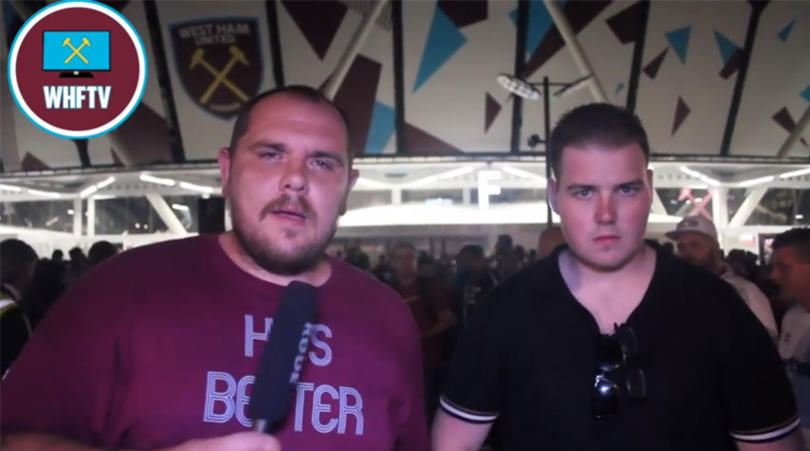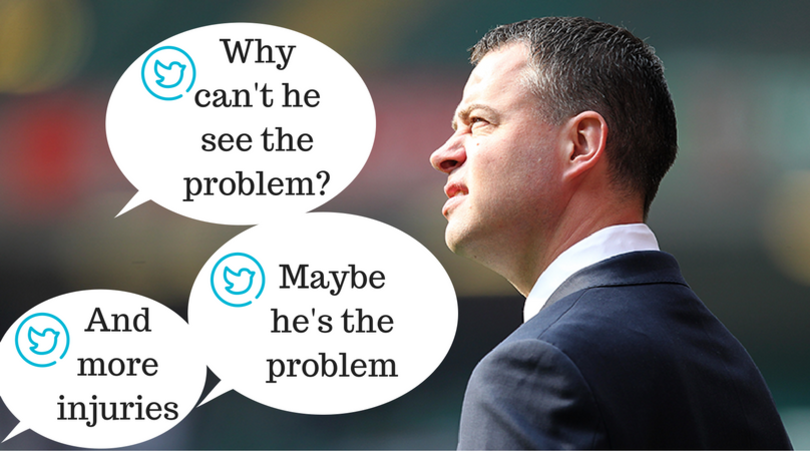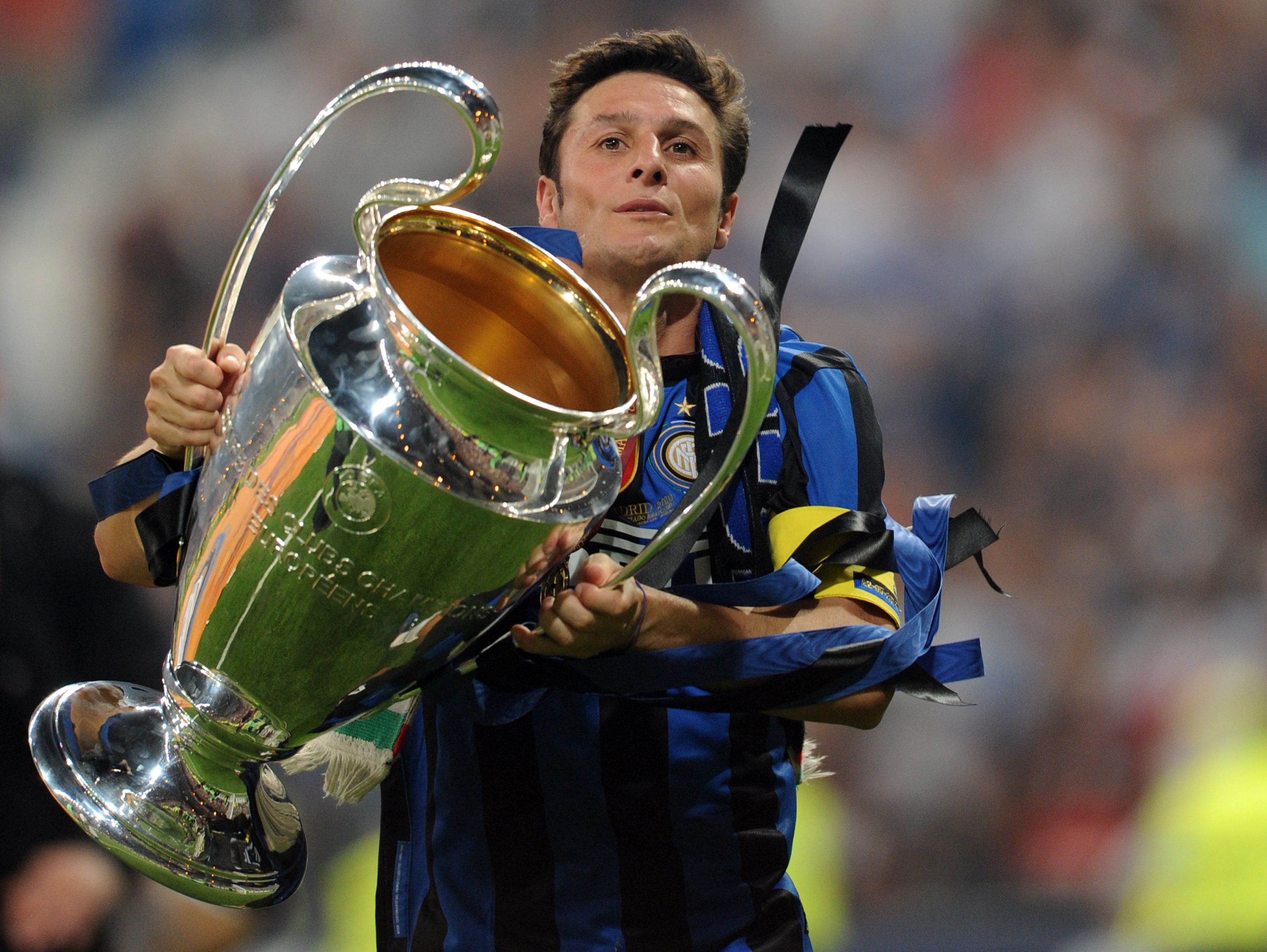Jurgen Klopp's Reds reign so far: 4 things he's done well – and 4 more he can't ignore any more
A thumping weekend win over Arsenal came just five days after the same scoreline in reverse at struggling Leicester. This Is Anfield's Matt Ladson explains how it typified the campaign – and evaluates Kloppo's flip-flopping Liverpool career so far
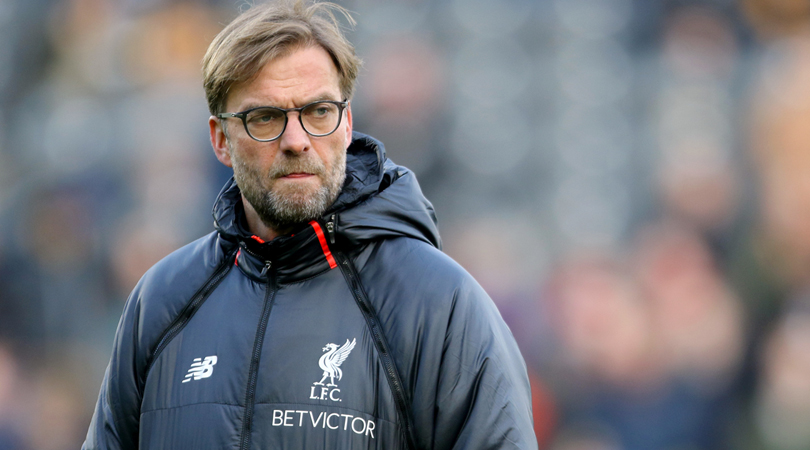
Jurgen Klopp’s Liverpool reign so far can perhaps be summed up by the Jekyll and Hyde nature of the Reds’ last two games, as they recovered from an entirely predictable defeat at relegation-threatened Leicester to beat fellow top-four contenders Arsenal and maintain an unbeaten record against the top six this season.
The reverse fixture against the Gunners, on the opening weekend of the season, was followed up by defeat to Burnley. Victory over Manchester City on New Year’s Eve preceded a 2-2 draw at Sunderland, and then one win in 10 games in all competitions.
Klopp’s Liverpool reign so far can perhaps be summed up by the Jekyll and Hyde nature of the Reds’ last two games
Such a poor run of form put Klopp under pressure and led to him being questioned for the first time since taking the Anfield hot seat in October 2015. The German has conceded he doesn’t like such inconsistency from his side, but believes that it is – for now at least – part of his squad’s development.
But what’s gone well – and not so – up to this point?
The good...
1. Uniting the club
If I sit here in four years, I am pretty confident we will have one title
In the weeks before Klopp’s appointment at Anfield, most of the fanbase doubted whether the owners would appoint a high-profile manager like the German. The worry about sacking Rodgers was that the Reds would end up with another five-year project and a manager who needed time to develop.
The best features, fun and footballing quizzes, straight to your inbox every week.
Instead, to their credit, FSG got Klopp – who immediately united the fanbase and gave everybody at the club a huge boost. The German’s confident, charismatic style at his first press conference raised expectation levels. "If I sit here in four years, I am pretty confident we will have one title," he said – although whether he actually meant a league title, or titles in terms of trophies, still isn’t clear.
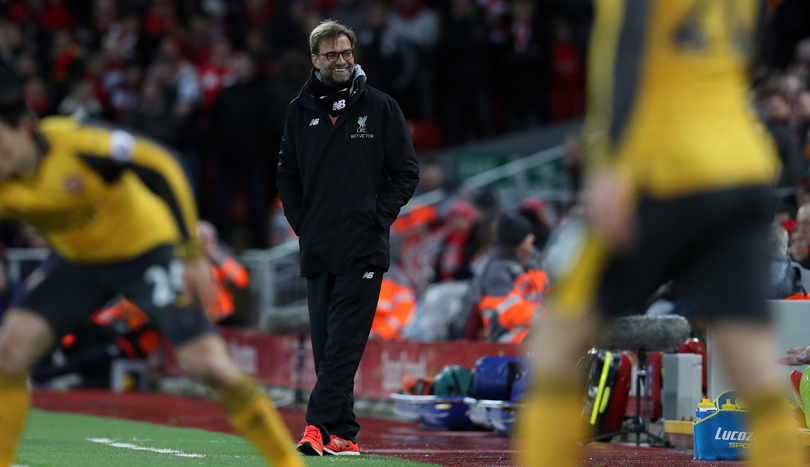
In Klopp’s first eight months in charge he was a couple of awful penalty kicks and a 45-minute capitulation away from delivering two trophies and a return to the Champions League. Those two cup final defeats did little to dent the optimism and enthusiasm ahead of his first full season in charge.
2. Entertaining football, big-game mentality
The football that Liverpool played early this season was some of the most entertaining Anfield has witnessed in decades. The 6-1 win against Watford, arriving on the back of 4-1 and 5-1 triumphs over Leicester and Hull respectively, buoyed spirits at Anfield.
Klopp’s 4-3-3 formation, with Adam Lallana in a deeper central role, worked to great effect, while the trio of Philippe Coutinho, Roberto Firmino and Sadio Mane offered variation and quality in attack. That unpredictability has dropped off in 2017 somewhat, with form, fitness and opposition teams perhaps wising up to Liverpool’s qualities accountable for that.
What should not be doubted is Klopp’s big-game mentality and tactical ability – his team recorded victories at Chelsea and Manchester City last season, again at Chelsea this campaign, and he has just become the first Reds boss since 1999/2000 to beat Arsenal home and away in the same season.
3. Improving the squad depth
Without Champions League football on offer in Klopp’s first summer, Liverpool were always shopping outside of Europe’s elite. So rather than marquee signings arriving to bolster the first XI, Klopp improved the depth of his squad instead.
Liverpool’s bench against Watford, with a fully-fit squad, featured Gini Wijnaldum, Sturridge, Divock Origi, Alberto Moreno and Ragnar Klavan. That’s a strong bench – one of the strongest Liverpool have ever had in the Premier League era – although too many of the fringe players have failed to deliver when called upon this season.
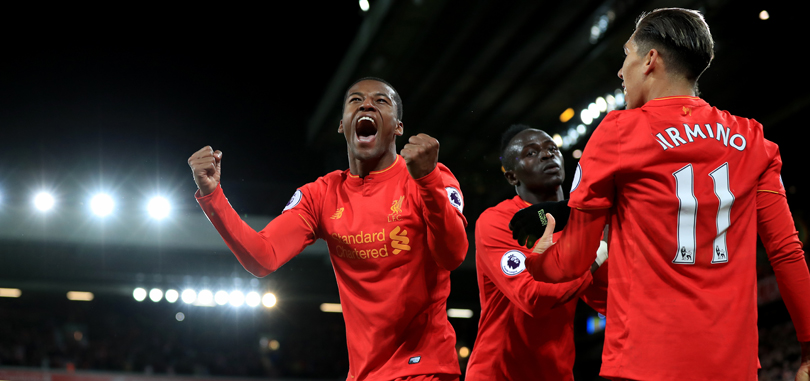
Injuries too have meant the bench has been nowhere near as strong, not least against Leicester last week when it featured Kevin Stewart, Ben Woodburn and Trent Alexander-Arnold. Squad depth has been improved, it’s just that niggling injuries have been too common all season despite a lack of European football.
4. Improved overall structure of club
Working on a structure for the future is the now. If the manager changes in the future, this club will have a good base
Klopp has been not only supportive, but instrumental in ensuring a long-term vision for the club has been put in place – especially since he signed a new contract last summer.
“Working on a structure for the future is the now,” Klopp said after the appointment of Michael Edwards as sporting director. “If the manager changes in the future, this club will have a good base.”
That’s been followed by the decision to merge the Reds’ Melwood training ground with the academy, and investment of £50 million into the Kirkby base. It’s a long overdue move, one which FSG have always wanted to make but appear to have finally been encouraged to complete by Klopp.
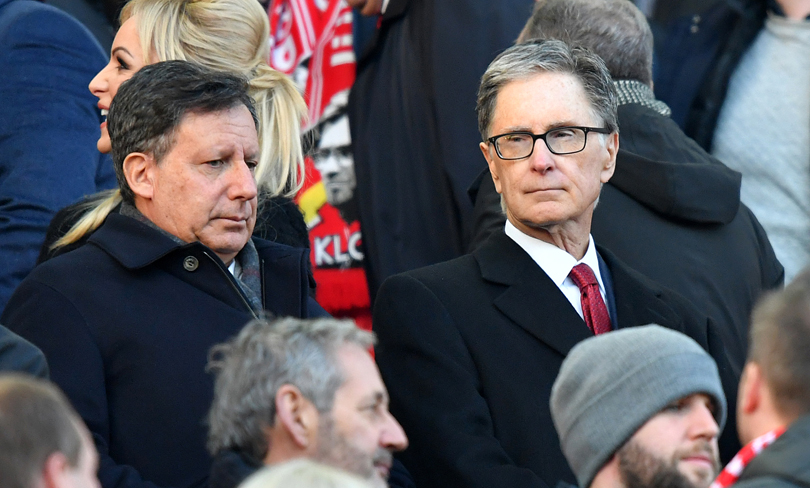
“It’s only good for the future of the club,” said the German. “I really believe infrastructure keeps responsibility up, and helps.”
The bad...
1. Spine and foundations so far
Liverpool fans still yearn for the spine of Reina, Carragher-Hyypia, Alonso-Mascherano-Gerrard, Torres that Rafa Benitez created. Since those star names left, though, they’ve never been replaced with anything like the same quality.
For the last four years Liverpool have needed a goalkeeper, a left-back, a centre-back and a defensive midfielder. They need leaders. They need players who won’t succumb so easily when the going gets tough. They need players who will turn up on the big occasions.
Instead, despite the changes Klopp has made, they still have an issue – whatever the reasons for it – when playing against lower-half teams, as evidenced by the embarrassing capitulation at Bournemouth, and defeats to Burnley, Wolves, Leicester, Swansea and Hull.
Liverpool’s two most successful Premier League-era managers, Gerard Houllier and Benitez, both built their sides from solid defensive foundations and Klopp can no longer ignore the need to do the same this summer. His side have scored more goals than any other in the league this season so far – it’s the defence that continues to undermine them.
2. Too slow to make changes in Basel
At half-time in the Europa League final last May, Liverpool were on course to return to the Champions League just seven months after Klopp’s arrival at the club. It would have meant more pulling power in the summer transfer window and elevated the club to Europe’s elite competition (where they’ve resided just once in the previous six seasons).
Sevilla’s goal just 17 seconds into the second half cancelled out Daniel Sturridge’s first-half strike, and Klopp’s side spent the rest of the match looking shell-shocked and chasing shadows. Concerning, though, was the manager’s failure to make changes as Sevilla cut through the midfield with ease.
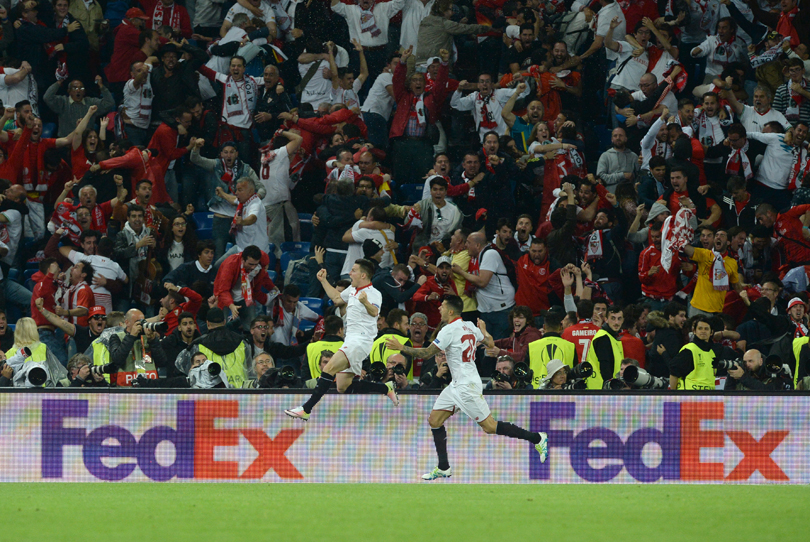
Klopp’s first sub arrived in the 73rd minute, Joe Allen adding a body in the central areas where Sevilla were getting so much joy. Too late, though: it was 3-1 by that point.
3. Overestimating squad strength
Before Klopp’s appointment, it was widely suggested that Liverpool also spoke to Carlo Ancelotti about being Rodgers’ successor. It was claimed, however, that Ancelotti felt a new spine of players would be needed in order to achieve success, whereas Klopp believed the squad was a good one.
After his first match in charge, the boss said: "We don't have to sprinkle magical dust on them: 'And now you can play football'. They know how to play."
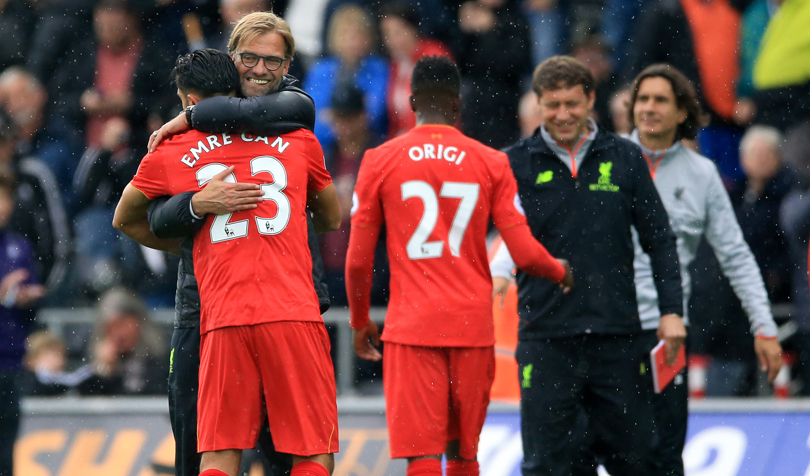
You could argue that too much faith has been placed in players who have proven time and again that they are not good enough – especially to be regular starters – for Liverpool.
The goalkeeper position hasn’t been solved, the centre-back area is as bad as it ever has been, there are questions over the midfield, and there’s no 20-goal-a-season attacker. Such long-term issues need sorting.
4. Fitness failings?
A debatable one, especially among certain Twitter sports fitness coaches (oh, hi there Raymond) – but one that certainly has increasing evidence.
Klopp’s decision to play an almost identical team at Sunderland, making just one enforced change despite fewer than 48 hours since his side had played an energy-sapping match at home to Manchester City, signalled the start of their downturn in form. No wonder Liverpool were slow and error-prone at the Stadium of Light, drawing 2-2 with a team that had just lost 4-1 at Burnley.
And no wonder the month that followed saw Liverpool overpowered and outpaced by Plymouth, Wolves, Southampton and Swansea.
This is Klopp and his coaching team’s first full season without a winter break. Perhaps their approach needs tweaking ahead of next season when European football of some sort will also be on the calendar.
Matt Ladson is the co-founder and editor of This Is Anfield, the independent Liverpool news and comment website, and covers all areas of the Reds for FourFourTwo – including transfer analysis, interviews, title wins and European trophies. As well as writing about Liverpool for FourFourTwo he also contributes to other titles including Yahoo and Bleacher Report. He is a lifelong fan of the Reds.
